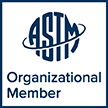AccuTrust Labs
AccuTrust Labs will ensure accurate and timely analytical results and services and to continuously meet or exceed the requirements of our clients and is ISO/IEC 17025:2017. Read our full Quality Policy Statement here.
AccuTrust Labs tests Medical Device Class 1 Procedural Masks and Respirators from raw materials to finished products within the 5 key measures:
Bacterial Filtration Efficiency, Particle Filtration Efficiency, Synthetic Blood Penetration, Differential Pressure, and Respiratory Resistance.
Bacterial Filtration Efficiency
The Bacterial Filtration Efficiency (BFE) test is used to measure a material’s resistance to penetration of bacteria. Our processes uses microbial aerosol liquid spray producing results as percent efficiency and correlating with the ability of the fabric to resist bacterial penetration. This test is performed on filtration materials such as air filters, face masks, surgical gowns and caps that are designed to protect against biological aerosols.
Standards:
ASTM F2100
ASTM F2101
EN 14683
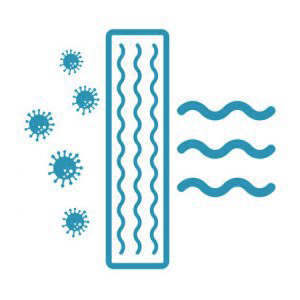
Particle Filtration Efficiency
The Particle Filtration Efficiency (PFE) test is used to measure a material’s filtering retention against particles. This test is performed on filtration materials such as air filters and face masks that are designed to protect against particle aerosols. Latex Particle Challenge and NaCl.
Standards:
ASTM F2100
ASTM F2299
TEB-APR-STP-0059 NIOSH
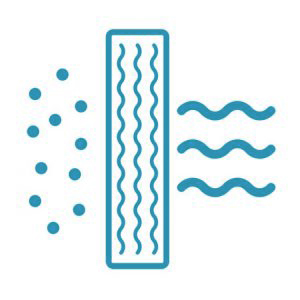
Synthetic Blood Penetration
The Synthetic Blood Penetration or Splash Resistance test is used to measure the resistance of the masks ability to act as a barrier against blood or other liquids. The test uses different levels of synthetic blood volumes directed at high velocity to determine the resistance.
Standards:
ASTM F1862
ASTM F2100
EN 14683
ISO 26609
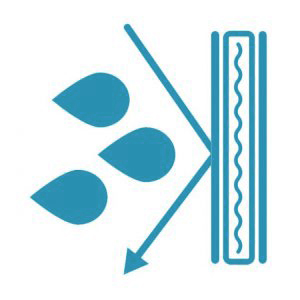
Differential Pressure
The Differential Pressure test is used to measure the breathability of masks. Our process is testing through measuring the differential pressure required to draw air through a measured surface area at a constant air flow rate and to test the air exchange pressure of the medical face mask material, which indicates the breathability.
Standards:
ASTM F2100
EN 149
EN 14683
GB 2626
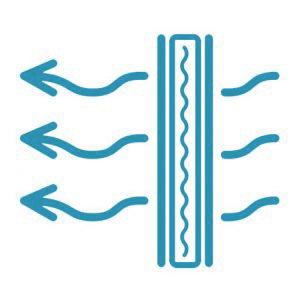
Respiratory Resistance
The Respiratory Resistance test is used for determining the inhalation resistance and exhalation resistance under the regulations of respirators and masks.
Standards:
GB 2626
GB/T 32610
TEB-APR-STP-0007 NIOSH
TEB-APR-STP-0003 NIOSH
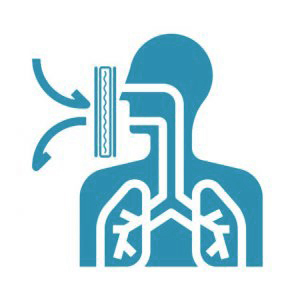
Looking for Lab Services?
Contact us today to discuss your testing needs.


